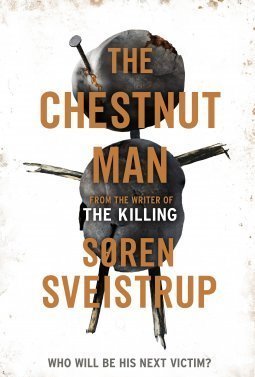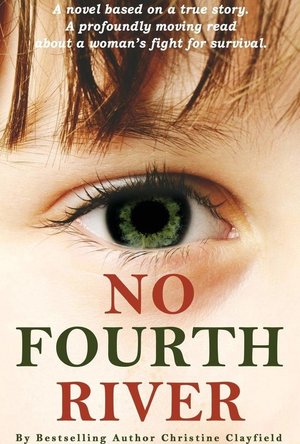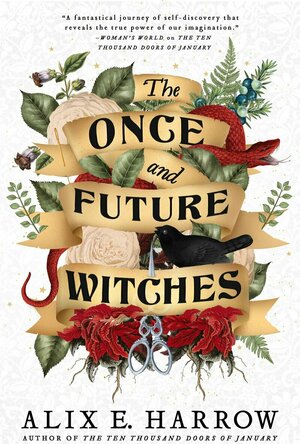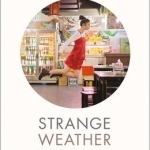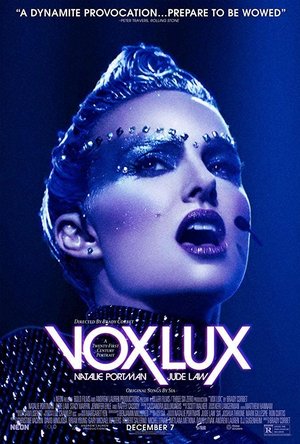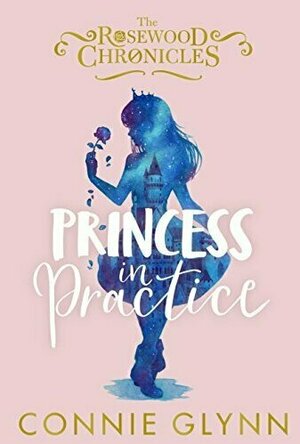Search
Search results
BookInspector (124 KP) rated The Chestnut Man in Books
Sep 24, 2020
I can’t decide one thing with this book, to put it in the “One of the best thrillers of 2018” because I read it this year, or to say that is “One of the best thrillers of 2019” because it is published next year. One thing for sure, it is an absolute treat!
The first thing that I really loved, was the cover. It looks quite simple, but the way that the chestnut man is portrayed gave me the feeling that it is going to be a great thriller, and it definitely didn’t disappoint me. I think, that in this book there are multiple protagonists- Thulin and Hess. They both play quite equal roles during the investigation, even though it might not feel so. There is a wide variety of characters in this novel, and all of them are very well nurtured and thought through. Their qualities are delivered slowly, and I loved how they opened up throughout the book. I really liked Thulin and Hess, they both are very complex individuals. They are quite different people, and when they work together, all the process feels messy, chaotic, but in the end, it provides results.
I don’t even know from where to begin with the praise for the plot. The whole narrative has multiple layers, and there are several cases combined in this book. We have the disappearance of a Minister’s daughter, which happened a while ago and shook the whole country, and at present, we have these new murders with the chestnut dolls at the crime scenes. These two things entwined with each other created more richness and action for the whole story. I loved that it was told from multiple perspectives, it not only allowed to get to know the characters better but also gave an insight into different minds. The author chose very intriguing topics for this novel, such as foster care; child abuse; social services and their work; politicians and their lives; different family relationships; discrimination at work and many more.
The writing style of this book is impeccable! Sveistrup is a very talented storyteller with a great eye for detail, and after reading this book, I am definitely his fan. I really loved the setting of this novel, it is set mainly in Copenhagen, during the autumn/winter season, which created a very gloomy and mysterious atmosphere to the whole novel. The author is not afraid to show disturbing (to some) killings with amputations or disgusting acts of humankind, so this book is not suitable for sensitive people. It might feel like a big book, but the chapters are really short and the whole plot and characters really absorbed me so, I just couldn’t put it down. I really liked the ending of this thriller, it is unexpected, unusual, but rounded this novel very beautifully!
So, to conclude, this book has everything what a great thriller needs. The characters are complex and intriguing, the mood, suspense and twists are very well developed, it is dark and can be disgusting at times, but overall it is a gripping novel and I can’t wait to read more from this author! I do strongly recommend it, and I hope you will enjoy it as much as I did.
The first thing that I really loved, was the cover. It looks quite simple, but the way that the chestnut man is portrayed gave me the feeling that it is going to be a great thriller, and it definitely didn’t disappoint me. I think, that in this book there are multiple protagonists- Thulin and Hess. They both play quite equal roles during the investigation, even though it might not feel so. There is a wide variety of characters in this novel, and all of them are very well nurtured and thought through. Their qualities are delivered slowly, and I loved how they opened up throughout the book. I really liked Thulin and Hess, they both are very complex individuals. They are quite different people, and when they work together, all the process feels messy, chaotic, but in the end, it provides results.
I don’t even know from where to begin with the praise for the plot. The whole narrative has multiple layers, and there are several cases combined in this book. We have the disappearance of a Minister’s daughter, which happened a while ago and shook the whole country, and at present, we have these new murders with the chestnut dolls at the crime scenes. These two things entwined with each other created more richness and action for the whole story. I loved that it was told from multiple perspectives, it not only allowed to get to know the characters better but also gave an insight into different minds. The author chose very intriguing topics for this novel, such as foster care; child abuse; social services and their work; politicians and their lives; different family relationships; discrimination at work and many more.
The writing style of this book is impeccable! Sveistrup is a very talented storyteller with a great eye for detail, and after reading this book, I am definitely his fan. I really loved the setting of this novel, it is set mainly in Copenhagen, during the autumn/winter season, which created a very gloomy and mysterious atmosphere to the whole novel. The author is not afraid to show disturbing (to some) killings with amputations or disgusting acts of humankind, so this book is not suitable for sensitive people. It might feel like a big book, but the chapters are really short and the whole plot and characters really absorbed me so, I just couldn’t put it down. I really liked the ending of this thriller, it is unexpected, unusual, but rounded this novel very beautifully!
So, to conclude, this book has everything what a great thriller needs. The characters are complex and intriguing, the mood, suspense and twists are very well developed, it is dark and can be disgusting at times, but overall it is a gripping novel and I can’t wait to read more from this author! I do strongly recommend it, and I hope you will enjoy it as much as I did.
Wow, this read was an absolute emotional rollercoaster, sometimes shattering my heart into million pieces and making me angry for all the injustice author had to suffer, and sometimes making me feel so proud for all the achievements Christine was able to conquer.
This book is a memoir of Christine Clayfield, where she is sharing her life story. The story begins when she was five years old, and it continues throughout her life, including rebellious teenage years, until the present, when she is 58 years old. All the past memories were triggered when suddenly she gets a call, that her mother is very ill and she has to return to Belgium, where she faces the ghosts from her past. Her youth years are very brutal and the amount of violence and abuse she had to face from her father is absolutely unbelievable. To top her already sad life, she married a violent man, who made her life even more miserable. I tend to question people’s choices in these type of books. Why they didn’t look for help? Why they didn’t complain to other family members? Why they stayed silent? And in many books I do find the answers which sound illogical, but not in this book. Christine explains everything very clearly, and for me, her thoughts and feelings fully explain every choice she had to make. I’m absolutely touched by how honest this book is. Christine poured her heart out and is sharing the deepest and darkest events with the readers, and I applaud her bravery because, I believe, it should have been a really difficult book to write.
The events in this book were jumping between present and past, giving a little insight of what will come. The author shared a beautiful story of how she met her present husband and the letters they shared while apart. They were absolutely adorable. The amount of topics discussed in this book is huge, such as child abuse, bullying, mentally caused illnesses, family problems, relationships with friends, alcoholism, loose sexual behaviour, domestic violence, business ideas, distance relationship, effects of divorce, and many many more. The author is openly speaking about nuns and their cruelty, and I thought nuns supposed to be kind and helpful, but they looked like tyrants rather than saints. (I kind of knew it, but still, was stupidly surprised about this fact 😀 )
The writing style is very pleasant and the language is easy and understandable. The chapters are a decent length and it doesn’t leave you bored. I would like to throw in a disclaimer, this book is not very easy mentally, there is a lot of cruelty and violence and does have a lot of heartbreaking moments, so tissues and strong nerves are recommended. 🙂 I loved the way Christine rounded up her novel, it left me really satisfied. So, to conclude, this work is incredibly inspiring and I do believe it should be widely spread to share the awareness of how you can do anything you put your mind to. That “can do” attitude, clear goals and a lot of hard work will make you successful, no matter what you endured in life. It is all in you, you just need to find it. Please do support this book, there is a lot of things to learn from Christine because she is freaking amazing and her story is absolutely inspiring. Enjoy 🙂
This book is a memoir of Christine Clayfield, where she is sharing her life story. The story begins when she was five years old, and it continues throughout her life, including rebellious teenage years, until the present, when she is 58 years old. All the past memories were triggered when suddenly she gets a call, that her mother is very ill and she has to return to Belgium, where she faces the ghosts from her past. Her youth years are very brutal and the amount of violence and abuse she had to face from her father is absolutely unbelievable. To top her already sad life, she married a violent man, who made her life even more miserable. I tend to question people’s choices in these type of books. Why they didn’t look for help? Why they didn’t complain to other family members? Why they stayed silent? And in many books I do find the answers which sound illogical, but not in this book. Christine explains everything very clearly, and for me, her thoughts and feelings fully explain every choice she had to make. I’m absolutely touched by how honest this book is. Christine poured her heart out and is sharing the deepest and darkest events with the readers, and I applaud her bravery because, I believe, it should have been a really difficult book to write.
The events in this book were jumping between present and past, giving a little insight of what will come. The author shared a beautiful story of how she met her present husband and the letters they shared while apart. They were absolutely adorable. The amount of topics discussed in this book is huge, such as child abuse, bullying, mentally caused illnesses, family problems, relationships with friends, alcoholism, loose sexual behaviour, domestic violence, business ideas, distance relationship, effects of divorce, and many many more. The author is openly speaking about nuns and their cruelty, and I thought nuns supposed to be kind and helpful, but they looked like tyrants rather than saints. (I kind of knew it, but still, was stupidly surprised about this fact 😀 )
The writing style is very pleasant and the language is easy and understandable. The chapters are a decent length and it doesn’t leave you bored. I would like to throw in a disclaimer, this book is not very easy mentally, there is a lot of cruelty and violence and does have a lot of heartbreaking moments, so tissues and strong nerves are recommended. 🙂 I loved the way Christine rounded up her novel, it left me really satisfied. So, to conclude, this work is incredibly inspiring and I do believe it should be widely spread to share the awareness of how you can do anything you put your mind to. That “can do” attitude, clear goals and a lot of hard work will make you successful, no matter what you endured in life. It is all in you, you just need to find it. Please do support this book, there is a lot of things to learn from Christine because she is freaking amazing and her story is absolutely inspiring. Enjoy 🙂
Lottie disney bookworm (1056 KP) rated The Once and Future Witches in Books
Sep 20, 2020
Thank you to Netgalley for luring me in with this recommendation and the gorgeous cover art. Thank you to Alix E Harrow for providing such an amazing story for this ARC review. All the opinions expressed below are my own.
"Witches and women's rights. Suffrage and spells. They're both...a kind of power...the kind we're not allowed to have."
I'm not often drawn to books involving witches to be honest. I love an annual viewing of Hocus Pocus (who doesn't?!) but that is usually where the affinity ends.
If anything can change my nonchalance, I suspect it may be Alix E. Harrow. This is the first piece of work I have read by the Hugo award winning writer and I don’t need any tarot cards to predict it will not be the last. From the outset of The Once and Future Witches I was hooked: the worldbuilding alone is amazing; you can immediately picture the mills, avenues, squares and slums of New Salem as well as the mysterious tower that pulls our three main characters together.
The three Eastwood sisters themselves are another work of art. Juniper, Agnes and Bella are fierce, formidable women in wildly different ways. They are also flawed, stubborn and quite frankly, inspirational: by linking women’s rights and witchcraft this fantasy novel suddenly becomes more real and relatable to the modern female reader, despite being set in 1893. We empathise, sympathise and rage right alongside the Eastwood sisters on their quest for equality in a male-controlled world.
However, not even witches can act alone and the Eastwood sisters have an amazing cast of supporting characters surrounding them. Impressively, not a single one of these characters can be accused of being two-dimensional: the character development that Harrow has invested into this novel is incredible and must have taken so much work! From the Suffragette’s secretary to the skin-crawling villain to the women and men fighting (and witching) side by side; every single character is substantial and memorable. The sarcasm within Juniper for example is hilarious and even the traditional figures of the Maiden, the Mother and the Crone refuse to conform to stereotypes: I LOVED it!
The format of this novel is very clever and practically forbids you from becoming too comfortable by peppering the main story with “witch-tales”. These complement rather than distract from the storyline and also provide small changes that make you smile – such as the tales of the Sisters Grimm.
Do not be fooled though: the use of witch-tales does not prevent The Once and Future Witches from being an incredibly modern piece of writing. Topics covered include sexuality, gender identity, feminism, race as well as smashing the patriarchy: all interspersed with magic, betrayal and a hell of a lot of emotion.
I would however argue that some topics are slightly too mature for the novel to be considered YA, the description of torture and suggestions of sexual abuse probably push this book firmly into general/adult fantasy fiction novels.
The Once and Future Witches is a future bestseller in my opinion. This unique, powerful novel provides characters that you can’t help but empathise with; slow-burning, intense relationships; the trials and tribulations that come with sisterhood and plot twists at every turn.
This book will swallow you heart and soul, make you laugh, make you cry and leave you bereft at the end.
It is a must read!
"Witches and women's rights. Suffrage and spells. They're both...a kind of power...the kind we're not allowed to have."
I'm not often drawn to books involving witches to be honest. I love an annual viewing of Hocus Pocus (who doesn't?!) but that is usually where the affinity ends.
If anything can change my nonchalance, I suspect it may be Alix E. Harrow. This is the first piece of work I have read by the Hugo award winning writer and I don’t need any tarot cards to predict it will not be the last. From the outset of The Once and Future Witches I was hooked: the worldbuilding alone is amazing; you can immediately picture the mills, avenues, squares and slums of New Salem as well as the mysterious tower that pulls our three main characters together.
The three Eastwood sisters themselves are another work of art. Juniper, Agnes and Bella are fierce, formidable women in wildly different ways. They are also flawed, stubborn and quite frankly, inspirational: by linking women’s rights and witchcraft this fantasy novel suddenly becomes more real and relatable to the modern female reader, despite being set in 1893. We empathise, sympathise and rage right alongside the Eastwood sisters on their quest for equality in a male-controlled world.
However, not even witches can act alone and the Eastwood sisters have an amazing cast of supporting characters surrounding them. Impressively, not a single one of these characters can be accused of being two-dimensional: the character development that Harrow has invested into this novel is incredible and must have taken so much work! From the Suffragette’s secretary to the skin-crawling villain to the women and men fighting (and witching) side by side; every single character is substantial and memorable. The sarcasm within Juniper for example is hilarious and even the traditional figures of the Maiden, the Mother and the Crone refuse to conform to stereotypes: I LOVED it!
The format of this novel is very clever and practically forbids you from becoming too comfortable by peppering the main story with “witch-tales”. These complement rather than distract from the storyline and also provide small changes that make you smile – such as the tales of the Sisters Grimm.
Do not be fooled though: the use of witch-tales does not prevent The Once and Future Witches from being an incredibly modern piece of writing. Topics covered include sexuality, gender identity, feminism, race as well as smashing the patriarchy: all interspersed with magic, betrayal and a hell of a lot of emotion.
I would however argue that some topics are slightly too mature for the novel to be considered YA, the description of torture and suggestions of sexual abuse probably push this book firmly into general/adult fantasy fiction novels.
The Once and Future Witches is a future bestseller in my opinion. This unique, powerful novel provides characters that you can’t help but empathise with; slow-burning, intense relationships; the trials and tribulations that come with sisterhood and plot twists at every turn.
This book will swallow you heart and soul, make you laugh, make you cry and leave you bereft at the end.
It is a must read!
Ivana A. | Diary of Difference (1171 KP) rated Strange Weather in Tokyo in Books
Oct 5, 2020
<a href="https://amzn.to/2Wi7amb">Wishlist</a>; | <a
<a href="https://diaryofdifference.com/">Blog</a>; | <a href="https://www.facebook.com/diaryofdifference/">Facebook</a>; | <a href="https://twitter.com/DiaryDifference">Twitter</a>; | <a href="https://www.instagram.com/diaryofdifference/">Instagram</a>; | <a href="https://www.pinterest.co.uk/diaryofdifference/pins/">Pinterest</a>;
<img src="https://diaryofdifference.com/wp-content/uploads/2020/08/Book-Review-Banner-33.png"/>;
Being born in Macedonia, I grew up reading books that were mostly translated. Because of that, I always appreciate the amazing job that translators do and have always cherished translated copies of my books. Strange Weather in Tokyo is no different, and Allison Markin Powell did an amazing job translating this book.
I read this book in August as part of the Tandem and Granta Books Instagram readalong - to celebrate #Kawakamimonth as well as Women in Translation month - and I am so glad I was able to join.
<b><i>Synopsis:</i></b>
One night when she is drinking alone in a local bar, Tsukiko finds herself sitting next to her former high school teacher. Over the coming months they share food and drink sake, and as seasons pass - from spring cherry blossom to autumnal mushrooms - Tsukiko and her teacher develop a hesitant intimacy that tilts awkwardly and poignantly towards love.
<b><i>My Thoughts:</i></b>
From the very first chapter, we travel to Japan and the whole mood changes. I could grasp the culture, taste the food and feel the weather changing through the seasons. The writing is brief and concise, yet full of emotion and wisdom. Both the characters and the scene had something very special about their description - they appeared so close, so real, as if you could just reach out your hand and touch them, feel them, taste them. This feeling stayed with me and I will cling on to it, because it happens so rarely these days.
Even though I am not a fan of student-teacher relationships, this relationship in particular kept me intrigued, simply because it was so much different than anything I have encountered before.
Tsukiko is young and tries to live in the modern world, while Sensei is much older and very traditional. They meet in the bar and talk. There are no dates, nor arranged meetings. They may see each other, and they may not. Sometimes it could be months before they bump into each other again. And that’s the beauty of their relationship. They live their own lives independently, and having each other as company is an added bonus.
A few plot twists lingered in the way of their love. Tsukiko’s potential boyfriend, who is the same age as her, Sensei’s old age and what that might mean, and the numerous arguments that seem bizarre, but test their relationship on deeper levels. It was very refreshing to see the brutally honest issue that is age between couples. Sensei knows he doesn’t have too long to live, and he is honest with Tsukiko, as he wants her to truly understand what this means, and once she understands it, he wants to ensure she is okay to proceed the relationship, given those circumstances.
<b><i>I have mixed feelings about the ending of Strange Weather in Tokyo.</i></b>
I was surprised at how it ended, but then I understood why. Perhaps I wanted a complete closure, but I learned that life doesn’t do closures. There is no perfect or right time to do something. We only have the “now” and we should enjoy every moment while we can.
<a href="https://diaryofdifference.com/">Blog</a>; | <a href="https://www.facebook.com/diaryofdifference/">Facebook</a>; | <a href="https://twitter.com/DiaryDifference">Twitter</a>; | <a href="https://www.instagram.com/diaryofdifference/">Instagram</a>; | <a href="https://www.pinterest.co.uk/diaryofdifference/pins/">Pinterest</a>;
<img src="https://diaryofdifference.com/wp-content/uploads/2020/08/Book-Review-Banner-33.png"/>;
Being born in Macedonia, I grew up reading books that were mostly translated. Because of that, I always appreciate the amazing job that translators do and have always cherished translated copies of my books. Strange Weather in Tokyo is no different, and Allison Markin Powell did an amazing job translating this book.
I read this book in August as part of the Tandem and Granta Books Instagram readalong - to celebrate #Kawakamimonth as well as Women in Translation month - and I am so glad I was able to join.
<b><i>Synopsis:</i></b>
One night when she is drinking alone in a local bar, Tsukiko finds herself sitting next to her former high school teacher. Over the coming months they share food and drink sake, and as seasons pass - from spring cherry blossom to autumnal mushrooms - Tsukiko and her teacher develop a hesitant intimacy that tilts awkwardly and poignantly towards love.
<b><i>My Thoughts:</i></b>
From the very first chapter, we travel to Japan and the whole mood changes. I could grasp the culture, taste the food and feel the weather changing through the seasons. The writing is brief and concise, yet full of emotion and wisdom. Both the characters and the scene had something very special about their description - they appeared so close, so real, as if you could just reach out your hand and touch them, feel them, taste them. This feeling stayed with me and I will cling on to it, because it happens so rarely these days.
Even though I am not a fan of student-teacher relationships, this relationship in particular kept me intrigued, simply because it was so much different than anything I have encountered before.
Tsukiko is young and tries to live in the modern world, while Sensei is much older and very traditional. They meet in the bar and talk. There are no dates, nor arranged meetings. They may see each other, and they may not. Sometimes it could be months before they bump into each other again. And that’s the beauty of their relationship. They live their own lives independently, and having each other as company is an added bonus.
A few plot twists lingered in the way of their love. Tsukiko’s potential boyfriend, who is the same age as her, Sensei’s old age and what that might mean, and the numerous arguments that seem bizarre, but test their relationship on deeper levels. It was very refreshing to see the brutally honest issue that is age between couples. Sensei knows he doesn’t have too long to live, and he is honest with Tsukiko, as he wants her to truly understand what this means, and once she understands it, he wants to ensure she is okay to proceed the relationship, given those circumstances.
<b><i>I have mixed feelings about the ending of Strange Weather in Tokyo.</i></b>
I was surprised at how it ended, but then I understood why. Perhaps I wanted a complete closure, but I learned that life doesn’t do closures. There is no perfect or right time to do something. We only have the “now” and we should enjoy every moment while we can.
Andy K (10823 KP) rated Vox Lux (2018) in Movies
Sep 18, 2019
Black Swan 2: The Return of Durant
In 1999, a middle school teenager Celeste has survived a horrific school shooting which has left multiple students and teacher dead. Through tragedy, the wounded girl triumphs through the singing of a tribute song which goes viral and becomes an anthem for heartbreak throughout the world.
She achieves instant success with her song, so much so, she gets a recording contract and her and her sister are whisked away to Sweden to record it officially and make a music video. Her manager chaperones her time there, but does not have much success. The girls have a good time partying and choosing every excess including the consequences. The video is a success and she becomes a star.
Eighteen years later, the aging pop star is trying to make a comeback and show she can still keep up. Her relationships with her sister, teenage daughter and sister as she has lived the ego-driven life of a celebrity now for too long. One the eve of a concert performance, another massive multi-person shooting happens at a beachfront, the perpetrators donning masks used in one of her videos making her the target of paparazzi and media scrutiny at a pivotal time in her life.
She tries to salvage her relationship with her daughter who is going through her own teenage angst with mixed success. It seems she is her own worst enemy questioning her choices and continuing leading the lifestyle of a demanding celebrity.
The movie seems like a tale of two halves with the teenage Celeste and the "grown up" version even having screen captures saying so. For me the first half was way more interesting than the second. The teenage Celeste was more believable, maybe because you didn't know her, but the screenplay was more interesting for her as well.
One can only imagine the emotions of having to live through such a tragedy and having to rebuild your life afterwards. Then adding on top of it, her instantaneous global stardom could not have done well to heal her physical, but emotional scars as well.
I felt Natalie Portman seemed out of place and her acting felt very wooden and dry to me unlike most of her portfolio. She even was an executive producer on the film along with her costar Jude Law, so she may have been focused on that instead of her acting performance. She doesn't appear in the film until close to an hour in and filmed her scenes over 10 days. It is unfortunate, but I really didn't believe her and took me out of several scenes as a result.
It is hard to empathize with the celebrity lifestyle of excess and demands having never lived it myself. It has certainly been portrayed onscreen much better than it is here and it really felt like the two halves of the film were disconnected and not resolved.
I certainly don't mind, or even encourage, the vague open-ended type of film generally speaking if it is left you to think about the plight of the characters their decisions, and ultimate destinations; however, this film accomplishes this only through bad writing.
The concert footage was well done and Portman certainly delivered on transforming into a Madonna/Britney Spears type icon. I was just hoping for more of a payoff and felt disappointed in the end.
She achieves instant success with her song, so much so, she gets a recording contract and her and her sister are whisked away to Sweden to record it officially and make a music video. Her manager chaperones her time there, but does not have much success. The girls have a good time partying and choosing every excess including the consequences. The video is a success and she becomes a star.
Eighteen years later, the aging pop star is trying to make a comeback and show she can still keep up. Her relationships with her sister, teenage daughter and sister as she has lived the ego-driven life of a celebrity now for too long. One the eve of a concert performance, another massive multi-person shooting happens at a beachfront, the perpetrators donning masks used in one of her videos making her the target of paparazzi and media scrutiny at a pivotal time in her life.
She tries to salvage her relationship with her daughter who is going through her own teenage angst with mixed success. It seems she is her own worst enemy questioning her choices and continuing leading the lifestyle of a demanding celebrity.
The movie seems like a tale of two halves with the teenage Celeste and the "grown up" version even having screen captures saying so. For me the first half was way more interesting than the second. The teenage Celeste was more believable, maybe because you didn't know her, but the screenplay was more interesting for her as well.
One can only imagine the emotions of having to live through such a tragedy and having to rebuild your life afterwards. Then adding on top of it, her instantaneous global stardom could not have done well to heal her physical, but emotional scars as well.
I felt Natalie Portman seemed out of place and her acting felt very wooden and dry to me unlike most of her portfolio. She even was an executive producer on the film along with her costar Jude Law, so she may have been focused on that instead of her acting performance. She doesn't appear in the film until close to an hour in and filmed her scenes over 10 days. It is unfortunate, but I really didn't believe her and took me out of several scenes as a result.
It is hard to empathize with the celebrity lifestyle of excess and demands having never lived it myself. It has certainly been portrayed onscreen much better than it is here and it really felt like the two halves of the film were disconnected and not resolved.
I certainly don't mind, or even encourage, the vague open-ended type of film generally speaking if it is left you to think about the plight of the characters their decisions, and ultimate destinations; however, this film accomplishes this only through bad writing.
The concert footage was well done and Portman certainly delivered on transforming into a Madonna/Britney Spears type icon. I was just hoping for more of a payoff and felt disappointed in the end.

Contacts Sync for Google Gmail
Utilities and Productivity
App
••• SYNCS IPHONE WITH GOOGLE! ••• SYNCS GROUPS! ••• #1 IN DOWNLOADS & REVIEWS FOR...

Radio y Podcast iVoox
News and Music
App
With iVoox you can listen, share and download podcasts, radio shows and much more for free, whenever...
Ivana A. | Diary of Difference (1171 KP) rated Princess in Practice (Rosewood Chronicles #2) in Books
Oct 2, 2020
From Connie Glynn comes the second book of the Rosewood Chronicles - Princess in Practice, and it is the adventure of a lifetime that we all have been waiting for. If you thought Undercover Princess was amazing - you will definitely love its sequel.
''Nothing in life is to be feared; it is only to be understood. Now is the time to understand more, so that we may fear less.''
The story continues where it left off, with Ellie, Lottie and Jamie settling after the adventurous ending and getting ready for their second year in Rosewood. With the new school year starting, their enemies are on the rise again, plotting their new actions, and Lottie and Jamie are more than ready to protect their princess.
But as always, things are not as easy as they seem, and they never suspect that danger will be so close to them, now more than ever.
I loved that Lottie has her moment with her old best friend, when she visits the hometown, and tells him all about the princess world. It was soothing to know that she still cares about him, and always will, despite their lives being very different now.
Throughout the book, we don't see any romantic scenes, but we do have a lot of subtle talks about them. I really loved the romance between Anastacia and Saskia. Maybe not the romance itself actually, because to be honest, as much as I love the author, she doesn't have a skill set for writing romance. What I did love, was the dedication of the couple to stay together and what Saskia would do and sacrifice, just for the person she loves.
I was very upset with the author trying so hard to make Lottie and Ellie a couple. Yes, we know lesbian relationships are against the rules in the kingdom and Ellie's father would be furious to find out. But Lottie had such a nice slow-burn romance going with Jamie, getting to know him and all. They even reminded me of Dimitri and Rose from Vampire Academy. They have a thing, and the author ruined it with trying to convince me Lottie likes girls. Well, I am not convinced. I already have my favourite girl couple, and it's not Lottie and Ellie.
Princess in Practice was a better-written book than Undercover Princess in my opinion.
If I had to choose though, I would still prefer the first book, because of the whole set up. The friendship stories were better and even the villains were better in the previous book.
The villains we had in this book were plain, without a character, and I simply did not care about any of them. Even that last chapter, with the mysterious leader that stands behind everything, all I could feel was - MEH!
When it comes to the friendship, and the wider team that helps these three main characters, we didn't really get to know them much more than we did from the previous book. My favourite was and will stay Raphael, who always makes me laugh.
''What? Why don't I get to be a plus-one?'' Raphael maned, putting.
''Because, Raphael,'' Anastacia mocked, ''you're not a trained bodyguards, nor are you a princess.''
To conclude, I loved reading Princess in Practice. It had a nice overall story and it was very easy to read. I will definitely be waiting for the third book to come out and will be desperate to read it! A great book during the summer period for sure. If you love princesses - that is :)
''Nothing in life is to be feared; it is only to be understood. Now is the time to understand more, so that we may fear less.''
The story continues where it left off, with Ellie, Lottie and Jamie settling after the adventurous ending and getting ready for their second year in Rosewood. With the new school year starting, their enemies are on the rise again, plotting their new actions, and Lottie and Jamie are more than ready to protect their princess.
But as always, things are not as easy as they seem, and they never suspect that danger will be so close to them, now more than ever.
I loved that Lottie has her moment with her old best friend, when she visits the hometown, and tells him all about the princess world. It was soothing to know that she still cares about him, and always will, despite their lives being very different now.
Throughout the book, we don't see any romantic scenes, but we do have a lot of subtle talks about them. I really loved the romance between Anastacia and Saskia. Maybe not the romance itself actually, because to be honest, as much as I love the author, she doesn't have a skill set for writing romance. What I did love, was the dedication of the couple to stay together and what Saskia would do and sacrifice, just for the person she loves.
I was very upset with the author trying so hard to make Lottie and Ellie a couple. Yes, we know lesbian relationships are against the rules in the kingdom and Ellie's father would be furious to find out. But Lottie had such a nice slow-burn romance going with Jamie, getting to know him and all. They even reminded me of Dimitri and Rose from Vampire Academy. They have a thing, and the author ruined it with trying to convince me Lottie likes girls. Well, I am not convinced. I already have my favourite girl couple, and it's not Lottie and Ellie.
Princess in Practice was a better-written book than Undercover Princess in my opinion.
If I had to choose though, I would still prefer the first book, because of the whole set up. The friendship stories were better and even the villains were better in the previous book.
The villains we had in this book were plain, without a character, and I simply did not care about any of them. Even that last chapter, with the mysterious leader that stands behind everything, all I could feel was - MEH!
When it comes to the friendship, and the wider team that helps these three main characters, we didn't really get to know them much more than we did from the previous book. My favourite was and will stay Raphael, who always makes me laugh.
''What? Why don't I get to be a plus-one?'' Raphael maned, putting.
''Because, Raphael,'' Anastacia mocked, ''you're not a trained bodyguards, nor are you a princess.''
To conclude, I loved reading Princess in Practice. It had a nice overall story and it was very easy to read. I will definitely be waiting for the third book to come out and will be desperate to read it! A great book during the summer period for sure. If you love princesses - that is :)

Octopus Retail POS+
Business and Finance
App
RetailPOS Plus - Point of Sales system for medium and large scale retail businesses Default user;...
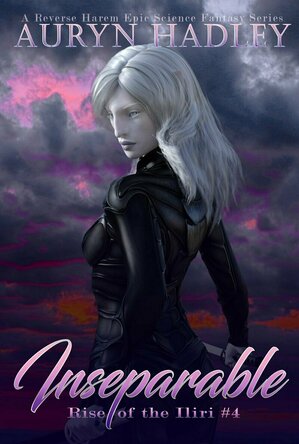
Inseparable (Rise of the Iliri #4)
Book
DISASTER! THE BLACK BLADES DISBANDED, AN ALLIANCE IN TURMOIL... Growing ever more tender yet always...
